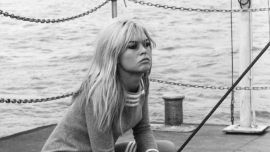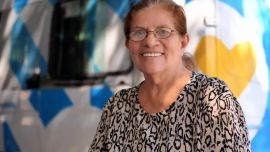Pope Francis, hospitalised in critical condition with pneumonia in both lungs, was showing signs of "slight improvement," the Vatican said Monday, while cautioning that doctors would not offer a prognosis.
Amid global concern over the 88-year-old's health, the Vatican said in its evening bulletin that "the critical clinical conditions of the Holy Father demonstrate a slight improvement."
"Today there were no episodes of asthmatic respiratory attacks; some laboratory tests have improved," it said, noting that Francis had worked in the afternoon after receiving the Eucharist in the morning.
The head of the Catholic Church was admitted to Rome's Gemelli hospital on February 14 with breathing difficulties and his condition subsequently worsened.
Francis was continuing to receive oxygen but "with slightly reduced flows and percentage of oxygen," the Vatican said Monday.
It cautioned, however, that "considering the complexity of the clinical picture" doctors declined to "decide on the prognosis."
Doctors treating Pope Francis have said the drug treatments he is undergoing will take time to show an effect, and on Friday they warned he would remain in hospital for this entire week, at the very least.
Earlier Monday, the Vatican said the pope had spent a peaceful night, with a Vatican source saying the Jesuit was "not in pain," eating "normally" and even "in a good mood."
In the evening he called the priest in the Gaza parish, the Vatican said.
The longest hospitalisation of Francis' near 12-year papacy has brought an outpouring of support for the pontiff, with prayers said around the world and tributes left outside the hospital.
His initial bronchitis developed into double pneumonia and on Saturday the Vatican warned for the first time that the pope's condition was critical.
On Sunday it said Francis continued to receive "high-flow" oxygen through a nasal cannula, while blood tests demonstrated an "initial, mild, renal failure, currently under control."
The latter was "not of concern," the Vatican said Monday.
Cardinals in Rome and members of the public were expected for a prayer for Francis in St. Peter's Square Monday evening led by Cardinal Pietro Parolin, the Vatican secretary of state.
‘Hope against hope’
Gemelli's chaplain, Nunzio Corrao, led a special prayer, saying it was time to "hope against hope" for Francis' recovery.
Well-wishers left candles outside the hospital, where Francis is in a 10th-floor papal suite.
Professor Sergio Alfieri, who leads the Gemelli medical team caring for the pope said Friday that sepsis, a life-threatening condition, was his biggest worry in terms of Francis' health.
"The real risk in these cases is that the germs pass into the blood," he said.
Francis' hospitalisation has sparked fears over his recovery.
"At this moment in history, one feels the need for his figure," Jesuit theologian Antonio Spadaro, who is close to Francis, told the Repubblica daily.
There were "many people around the world, including those in positions of responsibility, who are genuinely concerned because they know that Francis is one of the few who is able to connect the dots in a world that seems to be split," he said.
‘Open heart’
The condition of the pope, who had part of one of his lungs removed as a young man, has fuelled speculation about whether he might resign.
He has always been open to following his predecessor, Benedict XVI, who in 2013 became the first pope since the Middle Ages to step down because of his physical and mental health.
But Francis has repeatedly said it was not the time.
Theologian Spadaro agreed that a resignation should not be discussed now.
"The pope is vigilant, he is exercising his pastoral duty even from his hospital bed, and — although in a different, less visible manner — he manifests his presence," he said.
German Cardinal Gerhard Ludwig Mueller told the Corriere della Sera "the pope is alive and this is the moment to pray, not think about his successor.”
But he added: "We all must die. There is no eternal earthly life. The pope has a special task, but he is a man like all men."
by Ella Ide and Clément Melki / AFP



















Comments